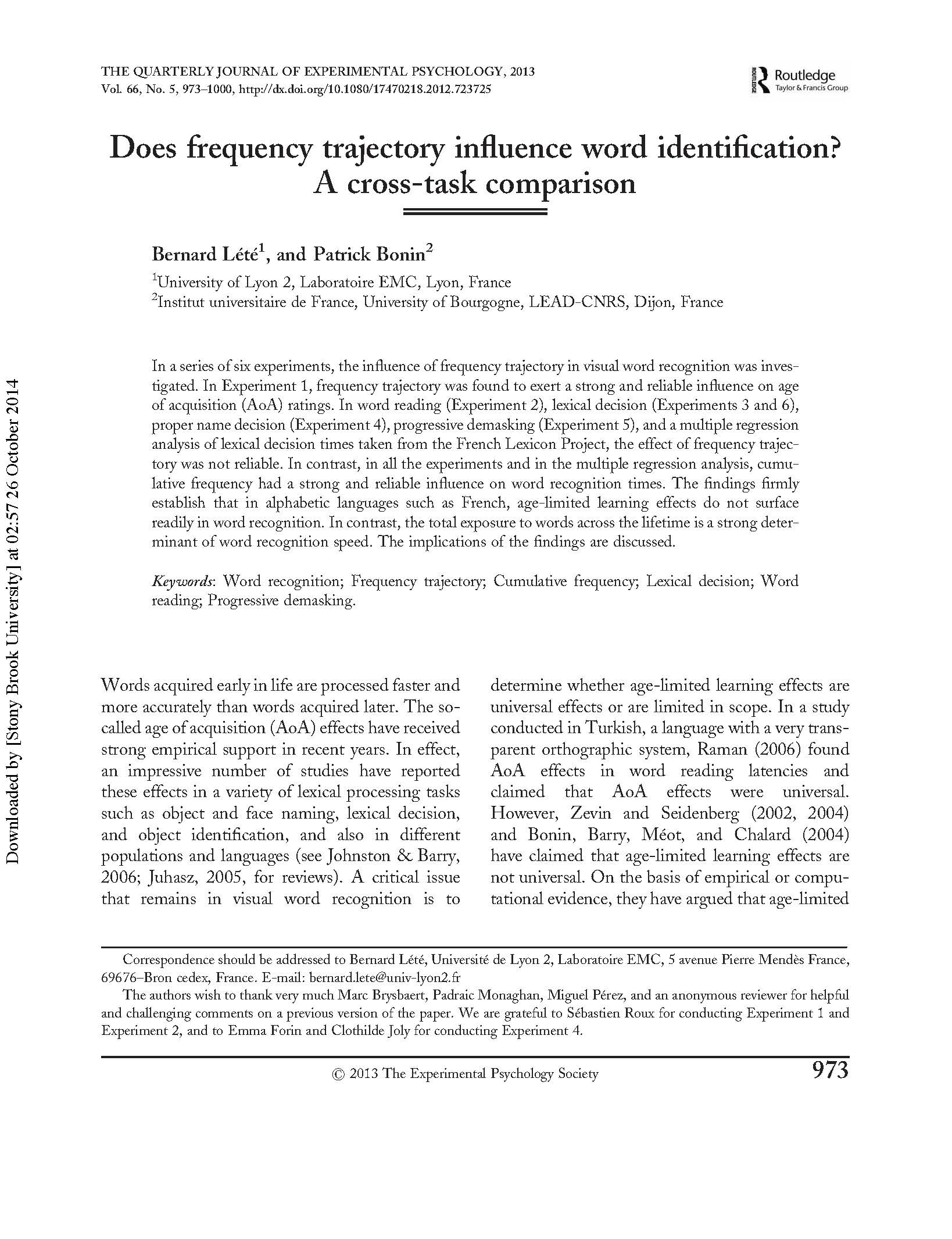In a series of six experiments, the influence of frequency trajectory in visual word recognition was investigated. In Experiment 1, frequency trajectory was found to exert a strong and reliable influence on age of acquisition (AoA) ratings. In word reading (Experiment 2), lexical decision (Experiments 3 and 6), proper name decision (Experiment 4), progressive demasking (Experiment 5), and a multiple regression
analysis of lexical decision times taken from the French Lexicon Project, the effect of frequency trajectory was not reliable. In contrast, in all the experiments and in the multiple regression analysis, cumulative frequency had a strong and reliable influence on word recognition times. The findings firmly
establish that in alphabetic languages such as French, age-limited learning effects do not surface readily in word recognition. In contrast, the total exposure to words across the lifetime is a strong determinant of word recognition speed. The implications of the findings are discussed.
Does frequency trajectory influence word identification? A cross-task comparison
